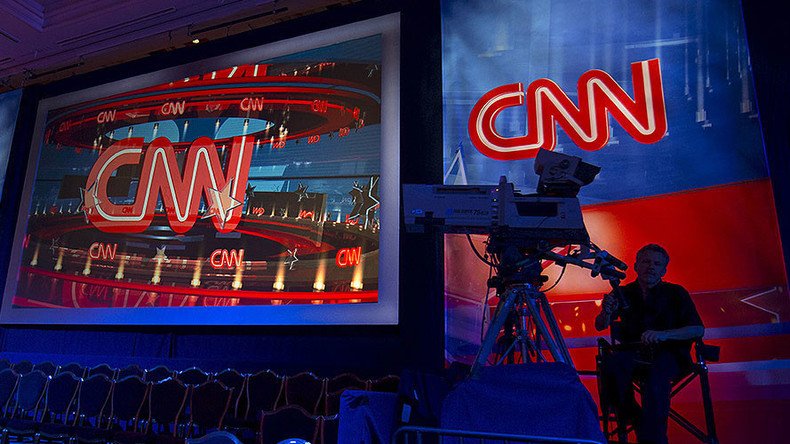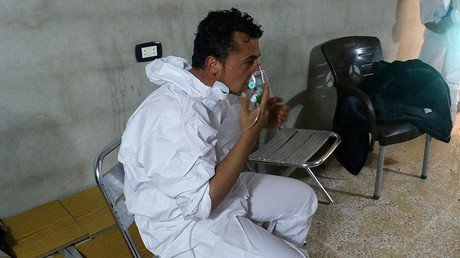CNN uses anonymous source to push Syria/Russia 'chemical attack' conspiracy

An anonymous senior US official told CNN that, while the US allegedly has proof that Damascus is responsible for the chemical incident in Idlib, Syria, it has uncovered no such evidence implicating Moscow, because Russia is wilier in scrambling its communications.
The anonymous official reportedly told the American news channel that the US intelligence community had intercepted communications “featuring Syrian military and chemical experts talking about preparations for the sarin attack in Idlib last week.” While the source failed to provide any concrete details about the alleged communication – such when it was intercepted or what names or other information it contained – they did note that the US “did not know prior to the attack it was going to happen.”
CNN speculated that the communication had been sent prior to the incident, but was not processed until the US began investigating it.
The source added that “there are no intelligence intercepts that have been found directly confirming that Russian military or intelligence officials communicated about the attack,” but noted “the likelihood is the Russians are more careful in their communications to avoid being intercepted.”
The most specific proof the source could come up with was his observation that Russia has a surveillance drone, which he claimed “flew over the hospital that was treating people injured in the attack.”
CNN suggested that even if the US had evidence of Russia’s involvement, it might not go public with it, as “the US feels right now that it has made the case that Russian support for [Syrian President Bashar] Assad must end.”
The report is the latest in a long series based on anonymous sources – with undisclosed agendas citing vague evidence which is never submitted to public scrutiny – that the mainstream media has deployed to level accusations against Russia. The story that Russia allegedly meddled in the US election has become a dominant narrative for opponents of Donald Trump, who are still trying to explain his surprise victory.
The major media outlets’ eagerness to blame Russia for everything occasionally leads to embarrassment, however. A fairly spectacular example came in January, when the Washington Post was forced to backtrack on a story that falsely claimed Russia had hacked into Vermont’s power grid. The newspaper also sparked outrage in December by touting a list of “Russian propaganda” websites, which turned out to include many respected independent media sources.
The alarming trend is not limited to the US media, however. Last year, the Guardian failed to accurately report on an Italian newspaper’s interview with Julian Assange. The British newspaper falsely painted WikiLeaks’ founder as a Trump supporter who would not criticize Moscow because he was presumably in league with the Russian government.
Some examples go back years. In 2014, the New York Times published photos of armed men, claiming that they were Russian troops on a clandestine mission in Ukraine. The newspaper had taken the images from the US State Department, and both had failed to properly verify them.













